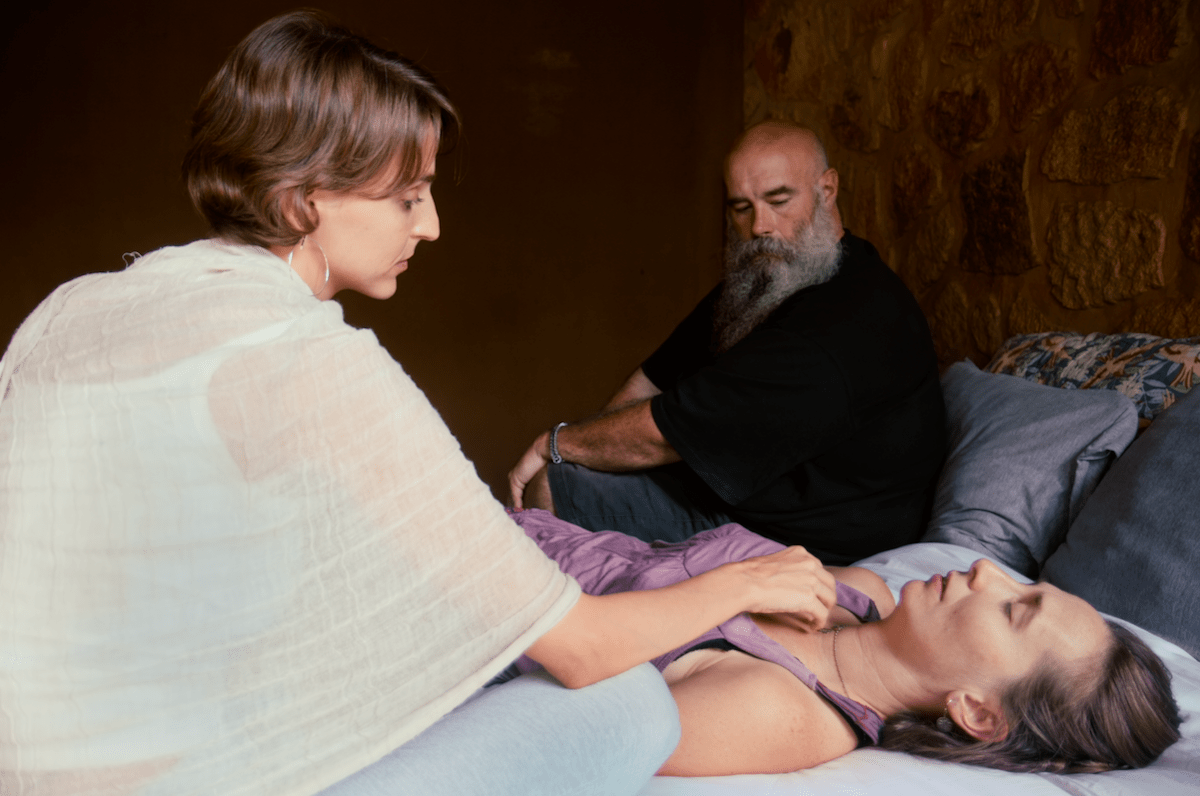Netflix’s (Un)Well Is a Dark, Infuriating Look at “Wellness” That Still Manages Empathy for Its Subjects

Despite being a juggernaut of an industry worth tens of trillions of dollars, “wellness” is a vague term with little to no oversight into how it’s applied. Companies and other groups can’t use explicit unproven medical claims but there are endless workarounds for still marketing their products or services as being medically beneficial. That means that from face masks to spa retreats to every new fad diet, it can be impossible for consumers to actually know if what they’re engaging with is helpful or useless, or even dangerous.
Every episode of the Netflix docuseries (Un)Well explores a different wellness trend. Starting with essential oils and making its way to more niche interests like adult breastmilk consumption and bee sting therapy, the show tries to cover all possible angles. We hear from scientists and get testimony both from people who practice a specific trend and those who profit off of it, as well as from people who have been severely hurt by it.
Most of the episodes follow the same basic structure, presenting a number of stories from proponents of the trend before turning the focus over to the damage it’s caused or is likely to cause. Your mileage will vary with exactly how convincing you find these anecdotes but personally, I found at least some parts of every episode to be surprisingly persuasive, if not always about the actual benefits of the phenomenon then at least about what the individual people were looking to find and why they felt this possibly outrageous idea could help them without them coming off looking like suckers. I mean, if I never have to hear “Dr. Z” talk about drinking essential oils again it will still be too soon but if aromatherapy helps an autistic teen get better sleep than who am I to judge?
But as convincing as some of the pro-wellness parts of the show might be, every episode (or nearly every one) has a turning point that will have you wanting to burn the wellness industry to the ground. The multi-level-marketing schemes of essential oils are a great starting point for the first episode but the show also gets into unethical food sources, sexual abuse at the hands of cult leaders, and so many needless, tragic deaths.
(Un)Well manages to walk the difficult line of maintaining an even hand while not letting anyone off the hook. It it is incredibly damning to those who deserve–both individuals and the larger industries at play–but also presents its subjects with total empathy. I listen to a lot of podcasts about MLMs and other scams and swindles, most of which are in between seasons right now, and this show definitely filled that void and had me yelling at my TV pretty much throughout the whole series. But there are also a lot of pretty incredible stories here from people that found real help in some inexplicable places.
(image: Netflix)
Want more stories like this? Become a subscriber and support the site!
—The Mary Sue has a strict comment policy that forbids, but is not limited to, personal insults toward anyone, hate speech, and trolling.—
Have a tip we should know? tips@themarysue.com